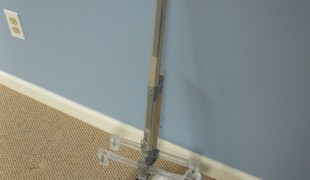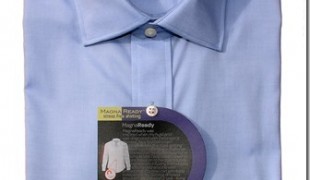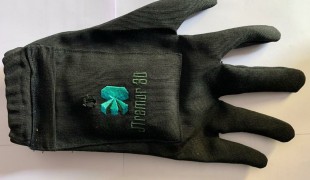- 4831
- 373
- 5
- 10
- 0
- Help Ukraine
About the solution
Kerry Mellin suffered from arthirtitis and has finding it increasingly hard to perform everyday tasks. One day, as Kerry explains in her own words: “While preparing for a family holiday I grabbed my broom and went to sweep out the barn. But due to the arthritis in my thumbs I was having a really hard time gripping onto the brooms handle and sweep after sweep it only became more painful. (...) I grabbed some duct tape, made a loop across the broom handle and slipped my hand inside. I was really surprised how effortless it felt having this little bit of support over the back of my hand! I was able to maintain control sweep after sweep with very minimal amount of grip and this little bit of leverage.”
She spoke about this to her two sisters, who were also suffering from similar problems, and the three of them thought that there had to be a solution. The very next day they started researching about the issue and realized that the solutions available in the market were either limited and old-fashioned or extremely expensive. So, they embarked on a new project: “We would design grip aids to be multi-tool adaptable, soft, comfortable, inexpensive and most importantly, super hygienic.”
Together, they created EazyHold, providing universal cuff that help people of all ages and abilities accomplish their daily activities. Available in different sizes, the EazyHold cuffs can be securely attached to all kinds of objects, helping users grip anything from eating utensils to writing materials of even toys. They now supply over 8000 schools, hospitals and therapy centers all throughout the world.
More information: https://eazyhold.com/
Adapted from: https://www.yourtherapysource.com/blog1/2016/12/07/eazyhold-flexible-uni...
This solution shall not include mention to the use of drugs, chemicals or biologicals (including food); invasive devices; offensive, commercial or inherently dangerous content. This solution was not medically validated. Proceed with caution! If you have any doubts, please consult with a health professional.
DISCLAIMER: This story was written by someone who is not the author of the solution, therefore please be advised that, although it was written with the utmost respect for the innovation and the innovator, there can be some incorrect statements. If you find any errors please contact the patient Innovation team via info@patient-innovation.com
-
-
570
-
0
-
9265

Man creates device to help to put on socks, shoes and even trousers
Grip
(SELF)-CARE: DRESSING: Dressing independently.
BODY BALANCE: Maintaining body balance
STANDING UP: Standing up from a seated position
Knee Deformity
Assistive Daily Life Device (to help ADL)
Strategy/Tip
Muscle weakness
Limited range of motion
Muscle pain or stiffness
Reduced grip force (grip)
Loss of muscle coordination
Muscle cramps or spasms
Joint deformity
Joint redness or warmth
Swelling or inflammation
Difficulty bearing weight
Muscle twitching
Difficulty standing from a seated position
Difficulty getting up from the floor
Numbness or tingling in the extremities
Joint pain or swelling
Restoring mobility
Promoting self-management
Preserving Organ Function
Rehabilitating After Stroke
Managing Neurological Disorders
Recovering from Traumatic Injuries
Maintaining Balance and Mobility
Preventing (Vaccination, Protection, Falls, Research/Mapping)
Caregiving Support
Internal Medicine
Neurology
Orthopedics
Physical Medicine and Rehabilitation
Rheumatology
Sports Medicine
Vascular Surgery
United States
-
-
-
785
-
0
-
13935

MagnaReady® - adaptative clothing for people who struggle with fine motor skills
Grip
CAREGIVING
Parkinson's Disease
Body-Worn solutions (Clothing, accessories, shoes, sensors...)
Assistive Daily Life Device (to help ADL)
Tremors
Stiffness or rigidity (difficulty moving)
Trouble with fine motor skills (e.g., writing, buttoning clothes)
Promoting self-management
Managing Neurological Disorders
Promoting inclusivity and social integration
Caregiving Support
Internal Medicine
Neurology
Physical Medicine and Rehabilitation
Rheumatology
United States
-
-
-
369
-
0
-
4494

How a nice's invention for his uncle is changing Parkinson's management
Grip
(SELF)-CARE: EATING: Eating independently.
(SELF)-CARE: DRINKING: Drinking independently.
Parkinson's Disease
Body-Worn solutions (Clothing, accessories, shoes, sensors...)
Tremors
Muscle cramps or spasms
Stiffness or rigidity (difficulty moving)
Regaining sensory function
Promoting self-management
Managing Neurological Disorders
To improve Treatment/Therapy
Raise awareness
Caregiving Support
General and Family Medicine
Internal Medicine
Neurology
Orthopedics
Physical Medicine and Rehabilitation
Germany
-
 en
en